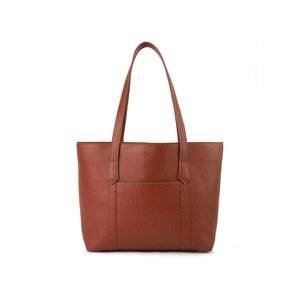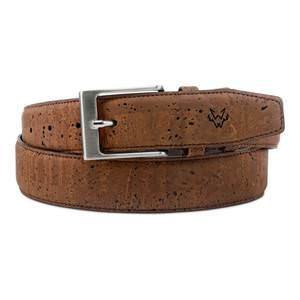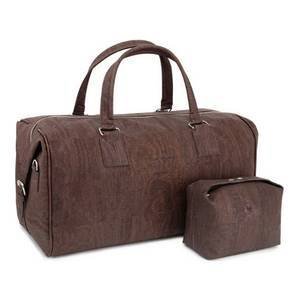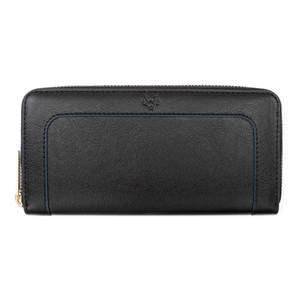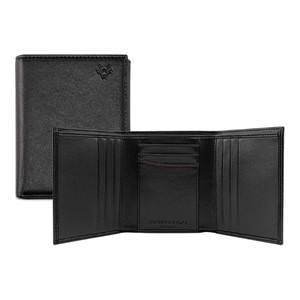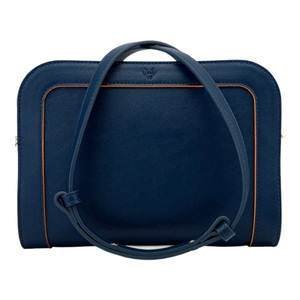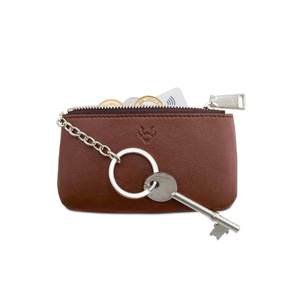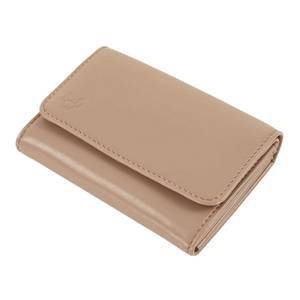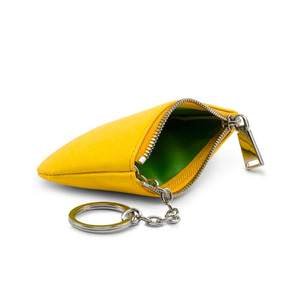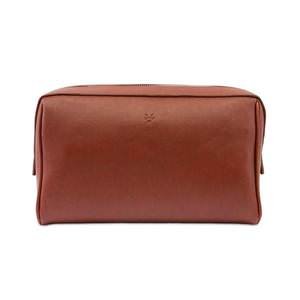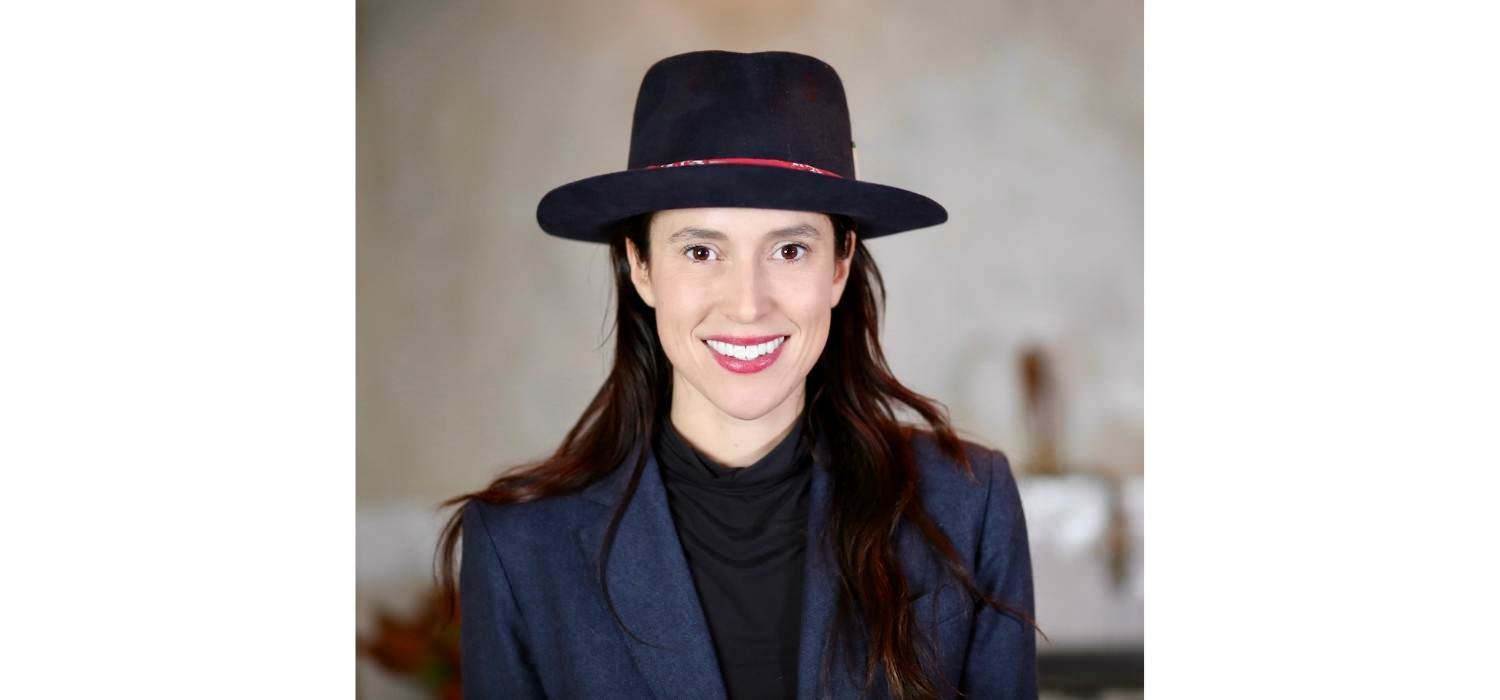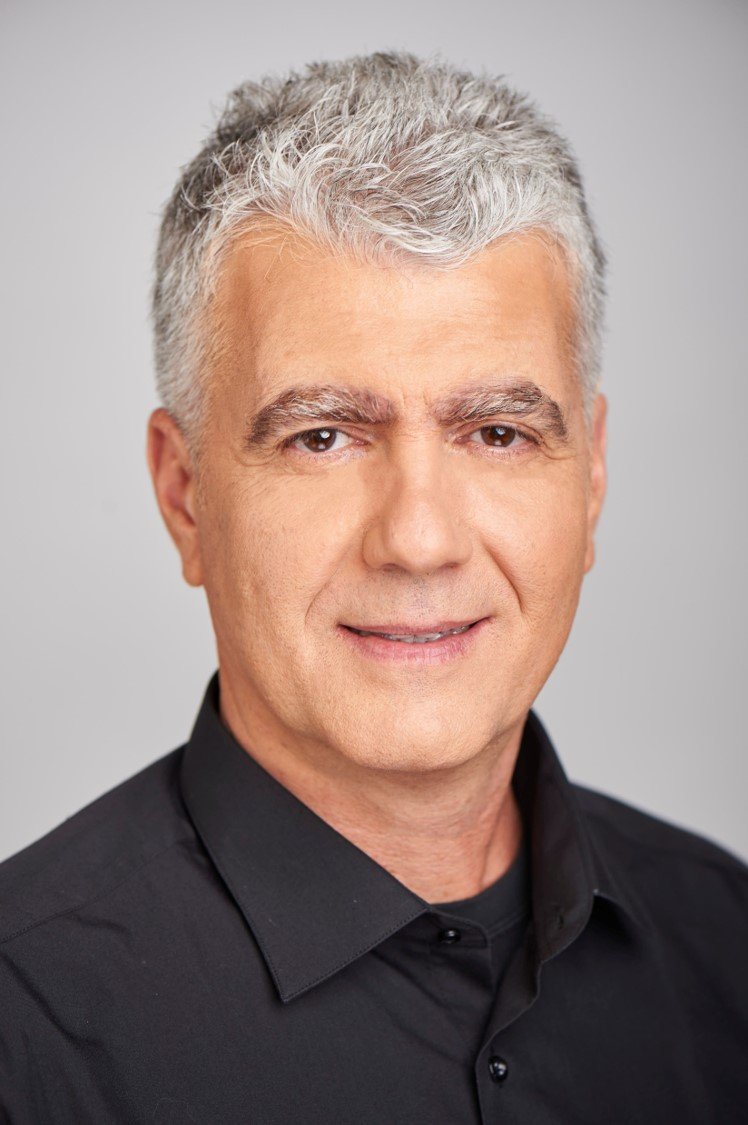Helen Farr-Leander, CEO of Watson & Wolfe, Talks About Leather Free Accessories
If you're often stumped at what to get the eco-conscious men in your life for birthdays, holidays, Father's Day, and other occasions, you're in luck! Watson & Wolfe offers an impressive range of leather-free men's accessories, including belts, wallets, card cases, vegan luggage sets, and gift sets. They also carry a collection of products aimed at women, including gorgeous leather-free bags, purses, accessory boxes, travel pouches, and key chains!
Keep reading for some of the reasons we love this eco-friendly, ethical brand.
Why Do We Love Watson & Wolfe's Leather-Free Accessories?
Sustainability
Each of Watson & Wolfe's luxury men's accessories is made with high-quality, Italian vegan eco-leather. Many are also bio-based, like their corn-based leather and cork leather collections. No PVC is used in their accessories.
Meanwhile, their boxes and tissue paper are made of entirely recycled materials, and dust bags are made with OEKO-Tex 100 certified organic cotton. This brand keeps it sustainable down to the last detail!
Ethics
A totally PETA-Approved Vegan brand, you'll never find anything leather-based in their shop! The company's CEO and founder, Helen Farr-Leander, has been vegan herself ever since she started researching the truth behind the leather industry. What she discovered was a world of cruelty, over-consumption, habitat destruction, and unethical working practices.
Learn more about her vegan journey in our exclusive interview below!
Our Exclusive Interview With Watson & Wolfe Founder, Helen Farr-Leander
OV: You worked with a luxury leather goods brand prior to founding Watson & Wolfe. Do you believe that many in the leather industry are unaware of the unethical practices that occur behind the scenes?
HFL: I do, although there is far more being done to raise awareness now than there was 10 years ago. The huge shift towards sustainability has helped significantly because without that many people may still believe that leather is a byproduct or that it’s a natural material.
OV: We understand you went vegan around the same time you discovered the truth behind the leather industry. How did your realization about the fashion industry lead to a change in your diet?
HFL: I began to understand that by eating meat I was contributing to the leather industry, and therefore contributing to the cruelty, the poor working conditions, and to deforestation. I started to look at the animals in the leather supply chain and remember being overwhelmed by the scale of the meat industry and how out of control the system is. The cruelty hit me the hardest and after that I vowed to be vegan and create Watson & Wolfe as a vegan brand.
OV: Your initial goal going into the founding of this company was to create a men’s leather accessory brand. Considering many people receive mixed reactions from those around them when they announce they’re going vegan, we’d like to know what kind of reactions you received from your family and collaborators after you announced your lifestyle change.
HFL: I guess the reaction was rather typical. Most people close to me thought it was a fad or an extreme diet I would soon get bored of. One of my closest friends was the only vegan I knew so I leaned on her for tips and moral support. In terms of the business plan, I was quite thorough in my explanation, and I backed it up with information on trends and consumer behaviour. I didn’t really get any kickback there.
OV: Stats seem to show that the vegan community is made up mainly of women. Was there a specific reason you focused mainly on men’s vegan accessories?
HFL: Absolutely. Women are also the front runners in pushing sustainability forwards, and I wondered why this was. I read a lot about men being the hardest segment of society to ‘green’. I also did a lot of research to see what was available for men and I couldn’t find anything that was luxurious, handcrafted and looked as good as something made in leather. If they couldn’t find a well-made, more eco-friendly alternative to their black leather wallet, why would they swap? I believed, and I still believe that by producing items which look, feel and perform like leather, men are far more likely to make the switch. The same goes for fashion apparel. So many brands are focused on women, but we must make a concerted effort if we are going to get the 3.7 billion men to shop sustainably too.
OV: When you first started researching the impact of the leather industry, what was one fact that stood out to you most?
HFL: The pollution. The amount of toxic waste is staggering, and it will continue to be a big problem until we stop using chromium tanning methods. This method of leather production includes more than 250 different chemicals and heavy metals. India has one of the largest global producers and here more than 40 million litres of untreated water is dumped into the Ganga River each day. The tanneries in Bangladesh are also dumping around 40 million liters every day.
These water ways and rivers are essential for local communities, but they are poisoned. Water is also a huge consideration. The industry’s demand for water is unsustainable because it takes 30 tonnes of water to tan one tonne of rawhide.
OV: Now equipped with this new knowledge, what essential values did you carry into the founding of Watson & Wolfe? Do you feel these core values have continued to evolve over time?
HFL: Consideration and Thought are the foundation of our core values. Consideration of our materials and of the supplier, consideration about the impact of those materials, and consideration about the length of the supply chain - there is little point having great materials if they must travel halfway around the globe to reach our factory. Thought for the people in our supply chain, thought about the waste we produce and thought about customer value. As a business it is essential to evolve, but these core values will always remain.
OV: You’ve mentioned in the past that we can use lower impact materials to achieve the same result we get with traditional leather. However, do you think vegan leather will soon surpass (or has already surpassed) the quality and durability of traditional leather?
HFL: There are new materials that look very promising, but they are new so it’s impossible to tell what the true longevity is. The important thing here is educating our customers that these materials should not be compared like for like to leather. These new textiles are materials in their own right and are a big step forward to improving our planets sustainability. We must move away from polluting materials and to do that we must decide which is better. A wallet is generally replaced every 3-5 years regardless of what material it is made from. We can choose a wallet made from a harmful and polluting material like leather or a new material which is less harmful. Regardless of which one we choose; the wallet will ultimately be replaced. Personally, I would choose the material which lasts just as long but has less impact.
OV: What kind of ‘future materials’ are you currently interested in? Are there any new materials you’re considering incorporating into the Watson & Wolfe collection soon?
HFL: As I mentioned we are torn between new materials and the carbon footprint of using them. Many of the newer materials are being developed in the US and other parts of the world. For now, at least, it makes more sense for us to buy materials from Italy and move the materials by road to our factory in Istanbul. That said, I am always considering new materials and my office is full of different samples and new developments.
OV: We’ve seen many vegan brands receive support mostly from flexitarians or eco-conscious consumers. Do you believe vegans are your main clientele, or do you believe you’ve received support mainly from non-vegans?
HFL: Our audience is mixed. There are a lot of people who are allergic to the chemicals in leather and these customers or not necessarily vegan or vegetarian. Many of our gift buyers are people buying for vegan friends and family and we have lots who are choosing non leather accessories for environmental reasons.
OV: Based on your success as a vegan accessories brand, where do you see vegan leather in 10 years? Do you think there is a chance it will eventually replace animal leather?
HFL: I would love to see that, but I’m not sure it is realistic to think that will happen. The leather industry is a multi-billion-dollar industry and it’s not going to go away quickly or without a fight. However, I strongly believe that more must be done to limit the environmental damage it is causing. We also must address the demand. The demand is huge and this in turn means more animals and more deforestation for cattle ranching.
OV: Tell us a bit more about your dog Watson, and how he inspired the company name.
HFL: Ahhh my dear Watson. I’ve had Watson since he was a puppy, and he is 16 years old now. He is smart, loving and often stubborn and demanding, but that’s what makes Dachshunds so adorable. They have big characters and it’s his big personality that inspired the name Watson. As for the Wolfe, we know dogs evolved from wolves and I see very much that Watson & Wolfe is part of the evolution of the fashion industry.
A huge thanks to Helen for sharing so many interesting details with us about this wonderful company and their incredible work!
We hope you were able to gain some more insight about the leather industry and how Watson & Wolfe is helping to combat this environmental threat, protecting our planet and the animals! If you want to support their incredible mission, check out a few popular items from their fabulous collection below.




